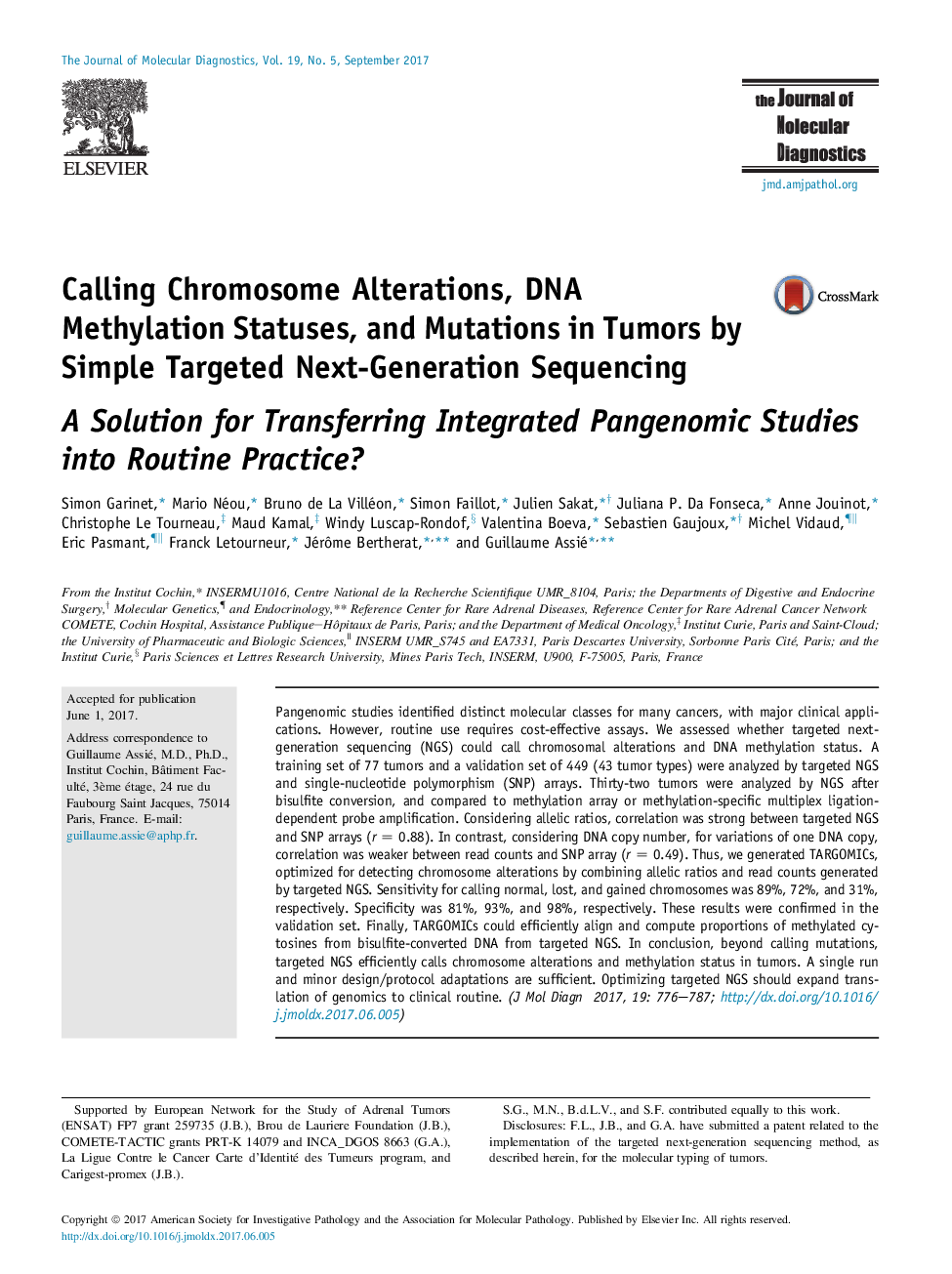| Article ID | Journal | Published Year | Pages | File Type |
|---|---|---|---|---|
| 5662983 | The Journal of Molecular Diagnostics | 2017 | 12 Pages |
Abstract
Pangenomic studies identified distinct molecular classes for many cancers, with major clinical applications. However, routine use requires cost-effective assays. We assessed whether targeted next-generation sequencing (NGS) could call chromosomal alterations and DNA methylation status. A training set of 77 tumors and a validation set of 449 (43 tumor types) were analyzed by targeted NGS and single-nucleotide polymorphism (SNP) arrays. Thirty-two tumors were analyzed by NGS after bisulfite conversion, and compared to methylation array or methylation-specific multiplex ligation-dependent probe amplification. Considering allelic ratios, correlation was strong between targeted NGS and SNP arrays (r = 0.88). In contrast, considering DNA copy number, for variations of one DNA copy, correlation was weaker between read counts and SNP array (r = 0.49). Thus, we generated TARGOMICs, optimized for detecting chromosome alterations by combining allelic ratios and read counts generated by targeted NGS. Sensitivity for calling normal, lost, and gained chromosomes was 89%, 72%, and 31%, respectively. Specificity was 81%, 93%, and 98%, respectively. These results were confirmed in the validation set. Finally, TARGOMICs could efficiently align and compute proportions of methylated cytosines from bisulfite-converted DNA from targeted NGS. In conclusion, beyond calling mutations, targeted NGS efficiently calls chromosome alterations and methylation status in tumors. A single run and minor design/protocol adaptations are sufficient. Optimizing targeted NGS should expand translation of genomics to clinical routine.
Related Topics
Health Sciences
Medicine and Dentistry
Health Informatics
Authors
Simon Garinet, Mario Néou, Bruno de La Villéon, Simon Faillot, Julien Sakat, Juliana P. Da Fonseca, Anne Jouinot, Christophe Le Tourneau, Maud Kamal, Windy Luscap-Rondof, Valentina Boeva, Sebastien Gaujoux, Michel Vidaud, Eric Pasmant,
